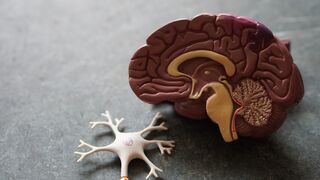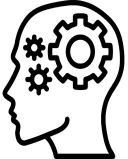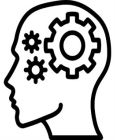Memory
Enhance Your Memory With State-Dependent Learning
Take control of your internal state to learn skills and perform academically.
Posted November 5, 2021 Reviewed by Davia Sills
Key points
- People find it easier to retrieve information that they just learned when they find themselves in a similar context.
- The context can be made up of both external variables (e.g., physical setting) and internal ones (e.g., after taking caffeine).
- People can take control of internal factors to enhance memory retrieval and learning.

In a classic experiment in the field of cognitive psychology conducted by Godden and Baddeley in 1975 [1], 18 divers learned lists of words either on dry land or underwater. The researchers found that participants remembered more words if they were in the same context when they retrieved them as when they had encoded the word lists. This is an example of context-dependent memory, also known as encoding specificity.
The general principle of encoding specificity states that retrieval of previously learned information is better when the context at the time of retrieval is similar to that at the time of encoding.
Encoding specificity applies to both external and internal factors. However, in many real-world situations, we have more control of our internal environment (mindset, substances used, etc.) than our external environment (scents, lighting, sounds, etc.). In practice, it is often most effective to take control of your internal environment through deliberate practice and nootropics use to effectively employ the principle of encoding specificity for memory enhancement. This way, you can, in theory, perform better regardless of what life throws at you in the form of external contexts.
What state-dependent learning is, and how it works
The effects of internal conditions during encoding and retrieval on memory performance are illustrated by the concept of state-dependent learning. Early research illustrated this phenomenon in dogs that were given the drug curare. [2]
“A conditioned response acquired under curarization disappeared when the dog returned to normal. It reappeared upon further curarization. Conditioning produced under normal conditions disappeared during curarization and was reinstated when the animal returned to normal.”
Dogs were found to perform a response better when they had been given a drug that they had previously been given when learning that response. Subsequent research has illustrated similar findings in humans. [3]
For example, in one experiment [3], 43 participants who were all highly afraid of spiders received either caffeine or a placebo during an exposure therapy session. One week later, they were exposed to spiders again so that researchers could measure the effectiveness of the exposure therapy in different conditions. This time, participants also received either caffeine or a placebo, resulting in a total of four groups. One group received caffeine in both sessions, one received a placebo in both sessions, and one received placebo first and caffeine second, and vice versa. When the internal context (caffeine or placebo) was similar in the first and second session, exposure therapy was more effective than if the internal states of the participants were incongruent.
To summarize, these findings suggest that state-dependent learning is a powerful learning strategy that can be used to your advantage.


